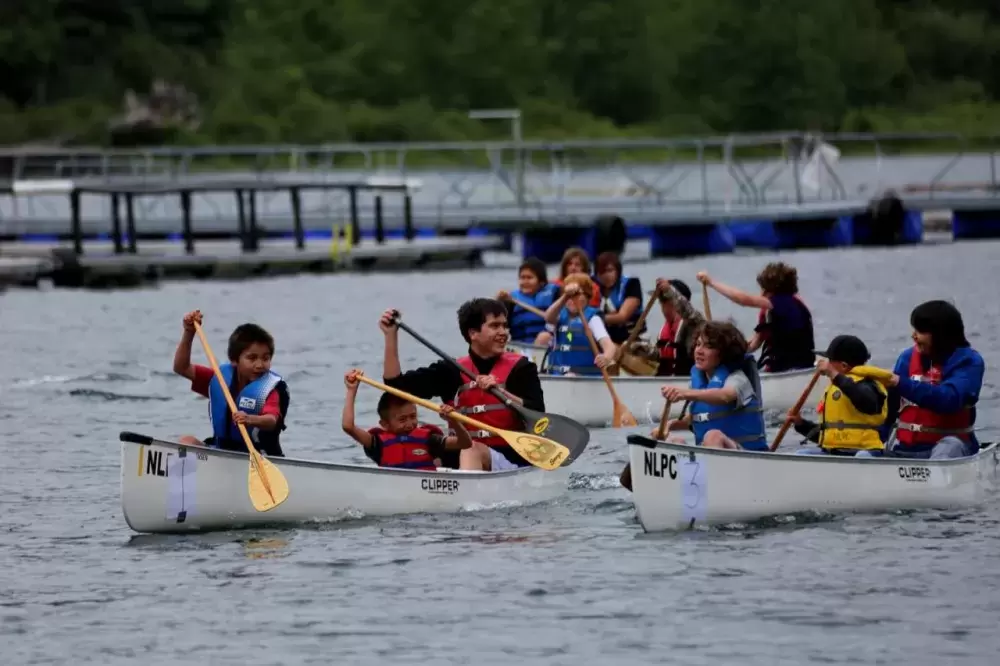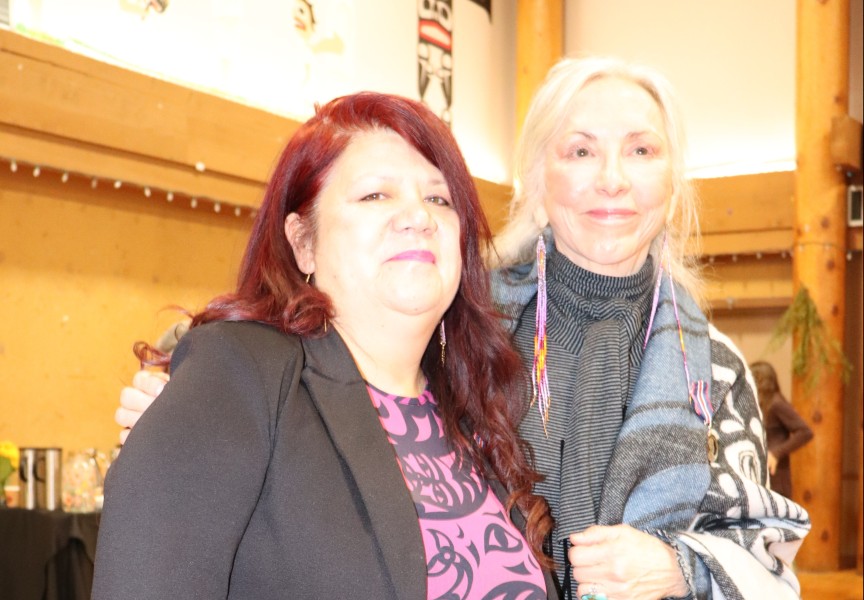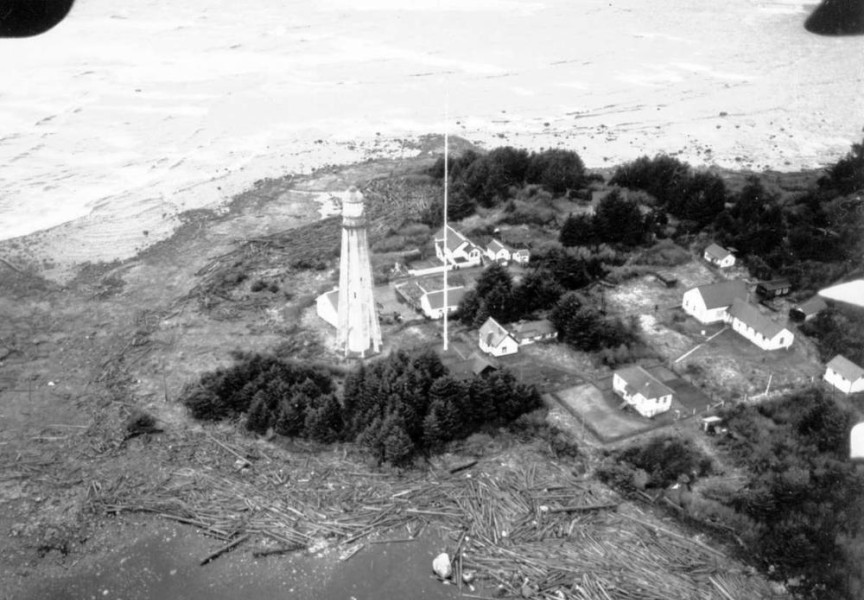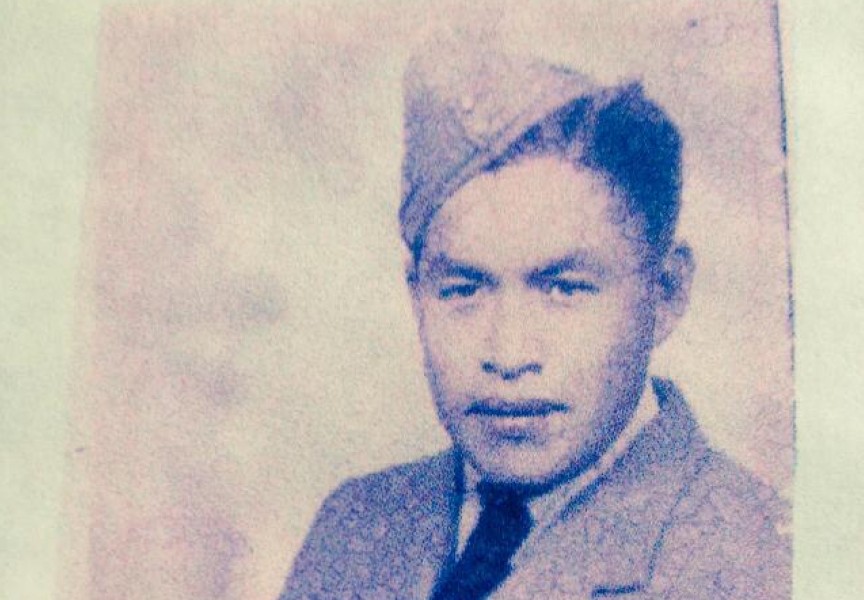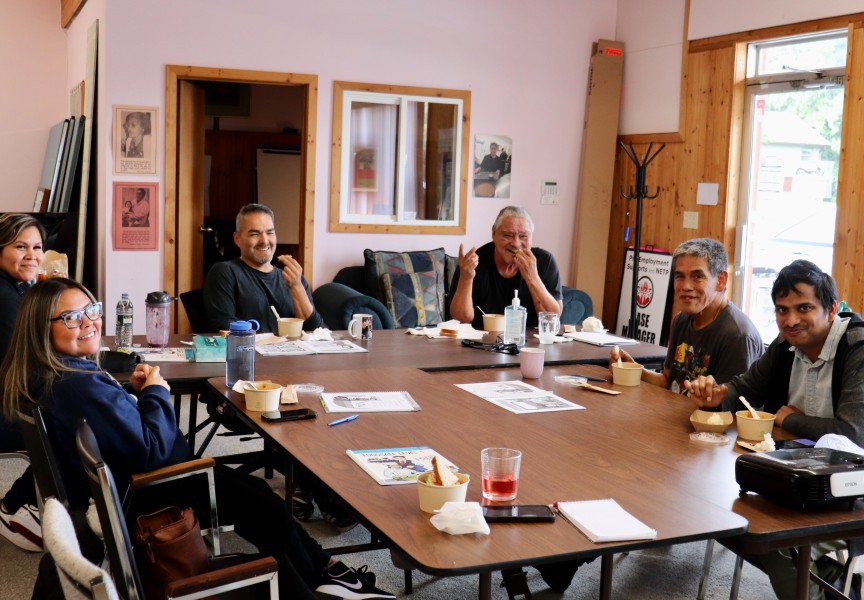Ditidaht First Nation hosted the fifth annual TRC Paddle Days June 8 and June 9 at their home in Malachan with participation from about 160 students from kindergarten to Grade 12 from five B.C. schools (Ditidaht, Haahuupayak, Pacheedaht, Windsor House, a school from north Vancouver, and Saturna Educational Centre, a school on Saturna).
See our photos here: http://www.hashilthsa.com/gallery/ditidaht-paddle-day-june-8
The days included paddle races in the morning while Nitinat Lake is calm. (The winds pick up in the afternoon and the area has become renowned for kite surfing.) During the afternoon on Day One the kids shared cultural dances and songs, played lahal, a traditional guessing game of bones and sticks, got their faces painted, made cedar bracelets and roses, or went on a nature walk.
Then there was a dinner of salmon and Dungeness crab (the community is known for the tasty crab it harvests) or tacos for those who preferred, and then a dance for the young people in the evening. The next morning was the longer canoe races, testing the endurance of the paddlers.
In the early days, June 11 was set aside each year for Paddle Days by Canoe/Kayak BC, and it would be the only races held on this date. This year that date fell on a weekend, so the event in 2016 was moved to the week days for the schools’ participation.
Originally it started as a nod to truth and reconciliation, said Eva Clarke, as a way to acknowledge the amazing cultural activities that Ditidaht and the Nuu-chah-nulth peoples participate in. The goal of Paddle Days is to revitalize canoeing and bring the younger generations back to that activity.
She was involved in Paddle Days right from the beginning, as a teacher at Ditidaht school. And now that she has moved to teach at other schools, including Pacheedaht, she remains connected to the event. Ditidaht school principal Lauranne Hutton has continued the paddling tradition, but although it is a school initiative, Paddle Days is indeed a community effort.
At the beginning, Clarke said, the school wanted to find a sport that a small community that didn’t have enough for a team sport, like basketball or soccer, could participate in.
“It seemed like a logical choice to do canoeing because it’s so much a part of their history and heritage, their songs, their culture. They started with four canoes and it took off from there.”
Reconciliation and revitalization is the underlying tone of the days, she said. And the event grows each year.
Ditidaht has becoming quite accomplished in their paddling skills, taking many medals in canoeing and kayaking at the North American Indigenous Games in 2014. They practise and train, setting aside part of each morning to be out on the water.
There are strong leaders and coaches in the community that keep the paddlers motivated. Peter Amos began as an assistant coach and is now head coach. He hopes to build upon the success of the sport in the community and is working to take his competitors to nationals this year to see if they can win places on Team B.C. for competition this fall at this year’s NAIG in Ontario. He’s got just a few months to fundraise for entrance fees, and has a long list on his to-do list leading up to this event.
But on Paddle Days, he was enjoying being out on the water watching over the fun, sometimes having to pull canoers out of the water after a tip (this year there were three on the first day) and helping to set up tables and move chairs and generally work with others to keep the days’ events on track.
Our photos from June 8 (see link above) show a lot of smiling faces and students having fun, a testament to the great hospitality shown by the community to their guests.

